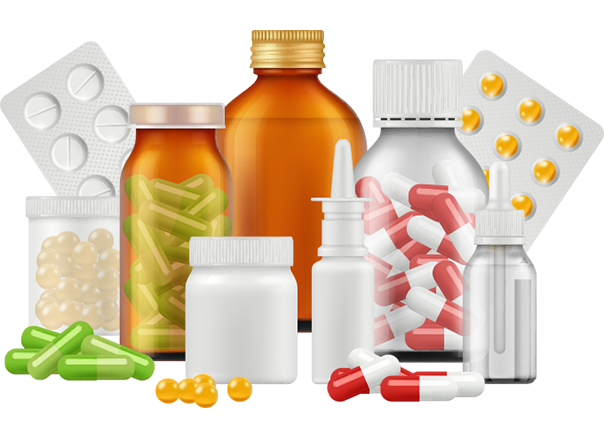The Lifesciences industry is a cornerstone of global healthcare, encompassing pharmaceuticals, biotechnology, medical devices, and research. At the heart of this industry are life science wholesale distributors, entities that ensure the efficient distribution of essential products to healthcare providers, laboratories, and other end-users. This article explores their role, significance, challenges, and future trends, offering a detailed look into this vital sector.
What Are Life Science Wholesale Distributors?
Life science wholesale distributors act as intermediaries between manufacturers and end-users, facilitating the supply chain of critical products such as:
- Pharmaceuticals: Medicines, vaccines, and over-the-counter drugs.
- Biotechnology Products: Cell cultures, reagents, and genetically engineered materials.
- Medical Devices: Surgical tools, diagnostic equipment, and consumables.
- Laboratory Supplies: Chemicals, glassware, and specialized instruments.
These distributors handle the procurement, storage, and distribution of these products while ensuring compliance with strict regulatory standards to maintain product quality and safety.
Key Functions of Life Science Wholesale Distributors
Life science wholesale distributors play multiple roles to keep the industry running smoothly:
1. Efficient Supply Chain Management
Distributors streamline the logistics of moving products from manufacturers to healthcare providers. They maintain a robust inventory and optimize delivery schedules to prevent stockouts or delays, especially for time-sensitive products like vaccines.
2. Regulatory Compliance
The life sciences sector is heavily regulated. Distributors must adhere to Good Distribution Practices (GDP) and other international standards to ensure product integrity. This includes temperature-controlled storage, detailed record-keeping, and transparent reporting.
3. Inventory Management
Distributors use advanced software to monitor inventory levels, forecast demand, and reduce waste. This is particularly important for perishable products with short shelf lives.
4. Market Access
By connecting manufacturers with a wide network of buyers, distributors help expand market reach. They often assist smaller companies lacking the resources to establish their own distribution channels.
5. Customer Support and Training
Distributors provide technical support to customers, including troubleshooting for equipment, usage training, and regulatory guidance.
Importance of Life Science Wholesale Distributors
1. Accessibility
Distributors ensure that essential products are available in remote or underserved areas, bridging gaps in healthcare access.
2. Cost Efficiency
By consolidating purchases and leveraging economies of scale, distributors reduce costs for manufacturers and end-users.
3. Expertise in Specialized Products
Many life science products, such as biologics and diagnostics, require specific handling and expertise. Distributors with specialized knowledge ensure these products are safely delivered.
4. Crisis Management
During emergencies like pandemics or natural disasters, distributors play a crucial role in rapid deployment of critical supplies.
Challenges Facing Life Science Wholesale Distributors
Despite their importance, Lifesciences Wholesale Distributors face several challenges:
1. Regulatory Complexity
Navigating the labyrinth of international, regional, and local regulations can be daunting, especially when dealing with cross-border logistics.
2. Technological Advancements
The rapid pace of innovation in life sciences demands distributors to continuously upgrade their knowledge, infrastructure, and technology.
3. Rising Operational Costs
Costs related to energy, labor, and technology are rising, putting pressure on profit margins.
4. Supply Chain Disruptions
Global events like the COVID-19 pandemic highlighted vulnerabilities in supply chains, from raw material shortages to shipping delays.
5. Counterfeit Products
Ensuring the authenticity of life science products is a persistent challenge, as counterfeit goods can have severe consequences for public health.
Future Trends in Life Science Wholesale Distribution
The industry is evolving rapidly, driven by advancements in technology and shifting market demands. Here are key trends shaping its future:
1. Digital Transformation
Distributors are investing in digital platforms for real-time inventory tracking, predictive analytics, and automated order processing.
2. Sustainability Initiatives
Green logistics and eco-friendly packaging are becoming priorities, as the industry works to reduce its environmental footprint.
3. Collaborative Partnerships
Distributors are forming strategic alliances with manufacturers, healthcare providers, and technology firms to enhance efficiency and innovation.
4. Personalized Medicine
The rise of personalized medicine, such as gene therapies and tailored biologics, is creating demand for customized distribution solutions.
5. Blockchain for Transparency
Blockchain technology is being explored to enhance traceability and prevent counterfeit products in the supply chain.
Selecting a Life Science Wholesale Distributor
Choosing the right Corporate Counsel Edwards Lifesciences distributor is critical for manufacturers and end-users. Key factors to consider include:
- Reputation and Reliability: Look for distributors with a track record of consistent service and compliance.
- Specialized Expertise: Ensure they have experience handling your specific product categories.
- Infrastructure: Verify their storage facilities, logistics network, and technological capabilities.
- Customer Support: Evaluate their ability to provide training, troubleshooting, and regulatory assistance.
- Scalability: Choose a distributor capable of scaling operations as your business grows.
Top Life Science Wholesale Distributors Globally
Several distributors dominate the global life sciences landscape, including:
- McKesson Corporation: A leader in pharmaceuticals and medical supplies distribution.
- Cardinal Health: Known for its extensive network and innovative supply chain solutions.
- Thermo Fisher Scientific: Specializes in laboratory equipment and biotechnology products.
- AmerisourceBergen: Focuses on pharmaceuticals and specialty product distribution.
How to Partner with a Distributor
If you’re a manufacturer or startup, partnering with a distributor involves:
- Researching Potential Partners: Identify distributors that align with your target market and product needs.
- Negotiating Contracts: Establish clear terms for pricing, exclusivity, and delivery schedules.
- Training and Onboarding: Provide product-specific training to the distributor’s team.
- Monitoring Performance: Use key performance indicators (KPIs) to track their effectiveness and ensure compliance.
Conclusion
Life science wholesale distributors are indispensable to the healthcare ecosystem. By bridging the gap between manufacturers and end-users, they ensure the timely delivery of life-saving products, maintain compliance with stringent regulations, and support innovation in the industry. As the sector continues to grow and evolve, Charlie Naylor Key Lifesciences distributors must adapt to new challenges and opportunities, leveraging technology and collaboration to stay ahead. Whether you’re a manufacturer seeking distribution or a healthcare provider sourcing supplies, understanding the nuances of this critical industry will enable better decision-making and long-term success.




